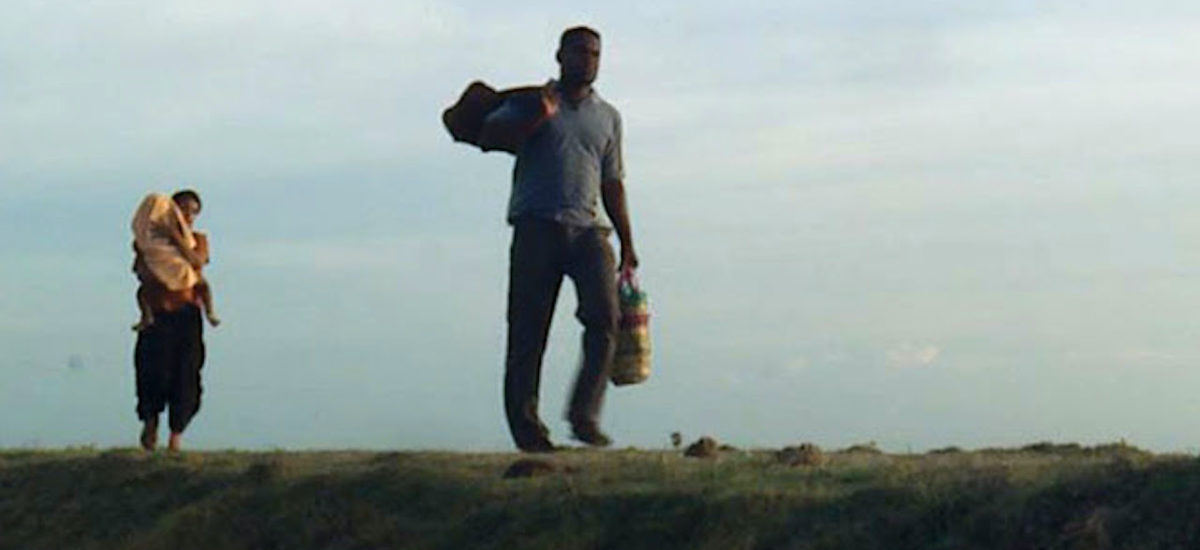Photo courtesy of Sri Lanka Guardian
Ever since they were brought to Sri Lanka from South India by the British colonists to work on the coffee, tea and rubber plantations Malayaha Tamils, more commonly known as Hill Country Tamils, Up Country Tamils or Indian Tamils, have been exploited and abused despite being a major source of foreign exchange for the country.
Poorly paid and living in dire conditions, deprived of health and education, they have suffered for many decades, discriminated against because of their ethnic origin.
After his recent visit to Sri Lanka Tomoya Obokata, the UN Special Rapporteur on contemporary forms of slavery, said he was concerned about links between labour exploitation and discrimination based on gender, age, ethnicity, caste, class and other grounds, pointing to the example of Malayaha Tamils.
“I witnessed that in Sri Lanka, contemporary forms of slavery have an ethnic dimension. In particular, MalayahaTamils – who were brought from India to work in the plantation sector 200 years ago -continue to face multiple forms of discrimination based on their origin,” he said.
He reiterated that laws alone were not enough to protect all workers from forced labour and other forms of modern slavery. “They have to be bolstered by action, supported by political will and enhanced with the necessary material and human resources in order to be effective. This focus on law enforcement has to be accompanied by effective protection and prevention measures.”
To escape from these harsh conditions and also for their security, a significant number of Up Country Tamils have relocated to the north in recent years, only to face similar discrimination and marginalization as well as economic hardship in their new place of abode.
Ahilan Kadirgamar, who is researching the situation of Upcountry Tamils living in the north, spoke to Maatram on some of his findings.
What is the situation of Up Country Tamils living in the north?
As far as Up Country Tamils in the Vanni are concerned, we find silence. How many at the national level are aware of their existence? Although the Up Country community in the north is exploited at every level, these issues do not come to light. Intellectuals and the media have a major responsibility in this regard. It is only when these issues are made known that solutions for them can be found. Their economic situation is dire and they are badly exploited. Political parties make the situation worse by causing confusion. In certain villages in Kilinochchi, Up Country Tamils do not possess proper deed lands or agriculture land. Even if they do have agriculture land and are settled there, they do not have irrigation facilities. Despite living near a tank, they do not have access to the water, which flows past their lands to other agriculture lands.
Why are the issues not brought to light?
The miserable life of Up Country people living in the north has not been recorded. Their history has been silenced. Those who declare common aspirations saying “we are all Tamils” are not concerned about land-related issues, education-related issues or employment issues of the Upcountry people living in the north.
What prompted the Up Country Tamils to move north?
From the latter part of 1950s to 1980s, a lot of Up Country people migrated to the north and east. There were several reasons for this. In 1948/1949, they were denied citizenship. Due to the Sirima-Sasthri Pact, many people became stateless without any citizenship. This was one of the major reasons for their migration to the north and east. Later they moved to escape the violence against them in the south in 1958 and 1961. Then again during the war they moved there for security reasons.
What were their expectations when they moved north?
They thought their Tamil brethren would warmly embrace them and they would have a prosperous future. But the situation turned to be different. They were settled in border villages when the war was brewing and this exposed them to violence. In the Kilinochchi District, Up Country Tamils were sheltered in huts by landed farmers and employed as manual labour. During the war they were displaced, moving from place to place on several occasions. Apart from this, the LTTE would conscript their children.
What are their sources of income?
The people are mostly engaged in manual labour as they lack land resources and were constantly displaced. Some earn permanent incomes by working on army farms while others clear landmines. The third source of income is from the garment industry where many girls are employed. However these three sources may dry up so a suitable economic plan is urgently needed for their future. On the estates, too, they face many problems but trade unions, political parties and social organizations have created a situation where these issues are publicly debated and demands are made.
What can be done to remedy the situation?
Social activists and intellectuals from the community are taking initiatives to debate these issues. I consider this as an initiative to break this silence. As a result we are able to see certain changes. Efforts are also being made to establish co-op societies, initiate livelihood projects and address the education problems of the next generation. At the last local government elections, many Up Country Tamils gained representation in the Kilinochchi-Vanni Divisions. There is a need for leadership to be built among them through discussions and research. But what causes worry is the lack of concern by government officials serving in those areas. It is only through struggles that changes are made possible. For such changes to occur here, the contribution of the people and the establishment of social organizations, agricultural organizations and trade unions is essential. The rise of progressive political parties is necessary to bring about changes. When progressive elements from the community come forward to mobilise the community, the younger generation will show an interest, leading to change. Discussion on identity issues is also very important.


